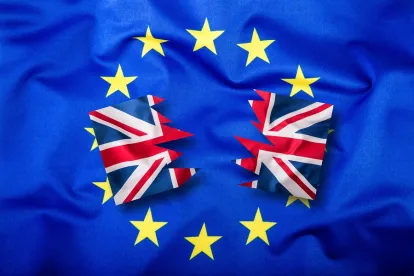The substantial gains made by the ruling UK Conservative Party in the general election on 12 December 2019 mean that, barring the unexpected, the UK will leave the EU on 31 January 2020.
The Conservative government now has sufficient majority to drive parliamentary approval of the draft withdrawal agreement renegotiated with the EU by UK Prime Minister Boris Johnson in October 2019. Mr Johnson campaigned in the run-up to the election for a mandate to “get Brexit done”.
Getting Brexit done is, however, only the first step in the process of redefining the UK’s new relationship with the EU. The next, and arguably far more complex, step is negotiation of a long-term, detailed free trade agreement. The draft withdrawal agreement provides for an 11-month transition period, to allow the UK and EU to adjust to their new relationship, and the government stated in its election manifesto that it would not consider asking the EU for an extension beyond 31 December 2020. This is a very short time within which to settle the terms of the future EU/UK relationship.
Trade agreements between the EU and other countries have taken years to finalise. On the other hand, the circumstances here are unique and may deliver a faster outcome. First, an outline of the future relationship has already been agreed, in the short political declaration that accompanied the renegotiated draft withdrawal agreement in October 2019. The matters addressed in the declaration include tariff-free and quota-free trade, access to the EU markets for services and co-operation in key areas such as defence. Second, the UK has been a member of the EU for over 45 years, and its rules and regulations are already harmonised with those of the other 27 EU Member States. However, the government vision for the UK as a non-EU member indicates an intention to diverge from EU laws, and the brevity of the declaration and resultant lack of detail mean that much has been left to negotiation.
The election result puts an end to over three years’ uncertainty whether Brexit would in fact happen. In practice, not much will change on 31 January 2020, as EU rules will continue to apply in the UK and to UK businesses during the transition period. The major change will take effect only when the transition period ends.
The focus now will be on the nature of this change and the extent to which the parties agree or are willing to compromise on future trade and co-operation terms. If compromise is not possible, and no agreement is reached by 31 December 2020, a no-deal Brexit remains a risk. Reliance on WTO terms remains an alternative, although it is not straightforward and may have been made less so by the United States’ refusal to reappoint a US judge to the WTO appeals panel, impairing final resolution of WTO disputes.
In the meantime, preparation for Brexit has never been more important for businesses in both the EU and the UK.



 />i
/>i

